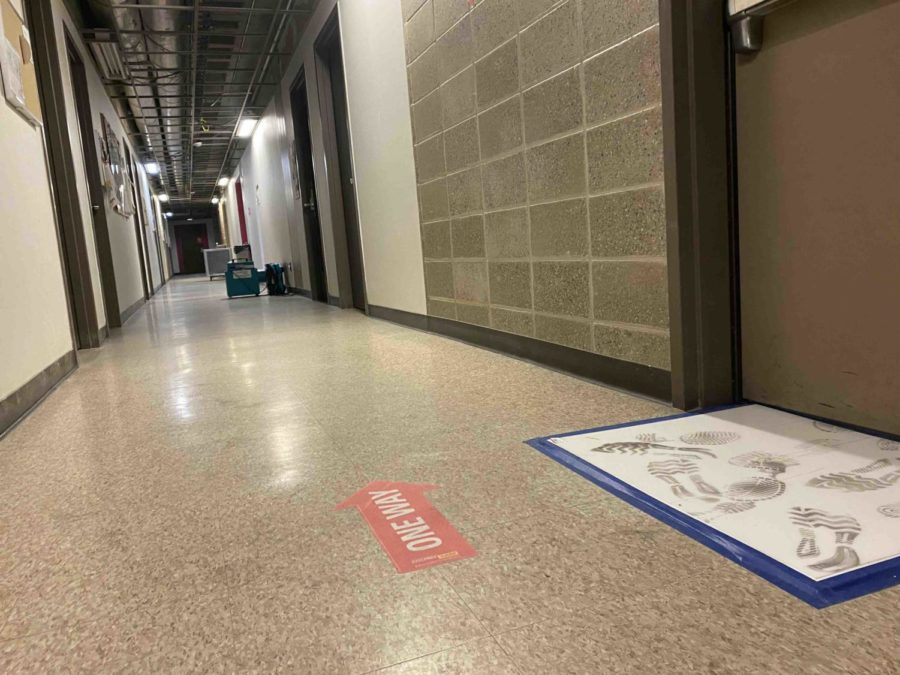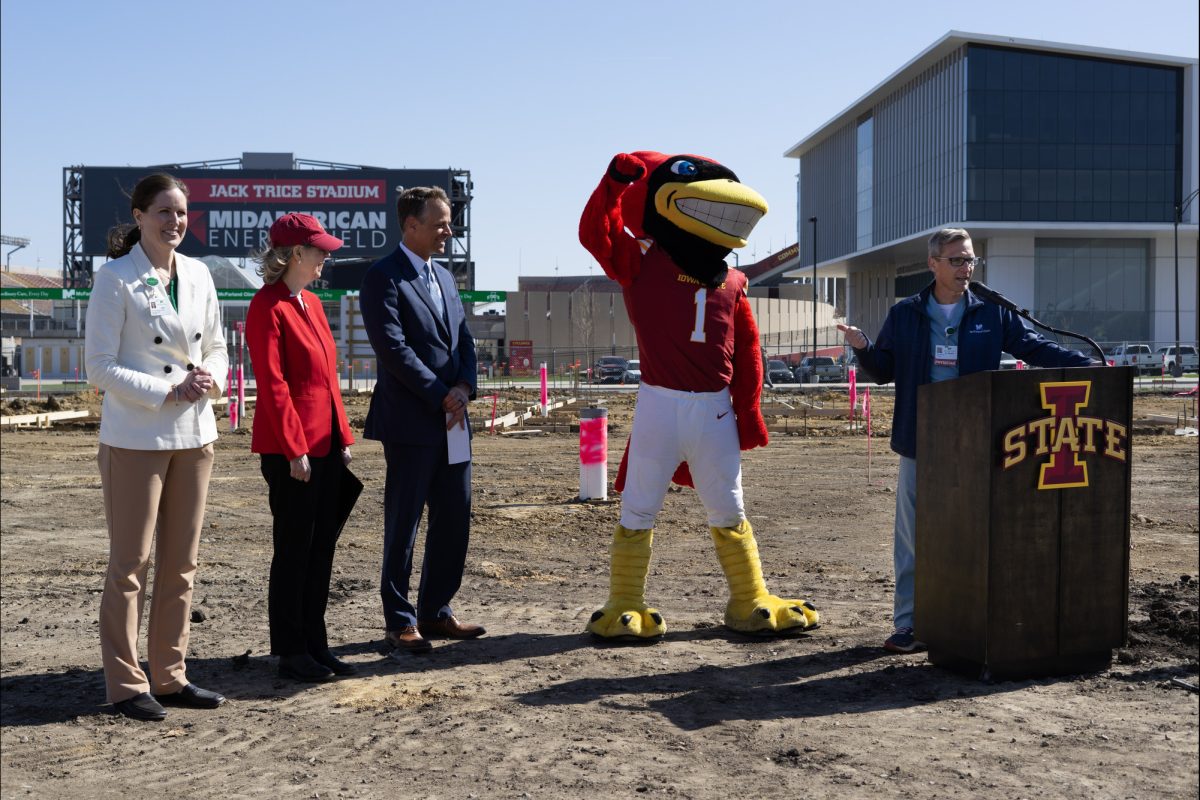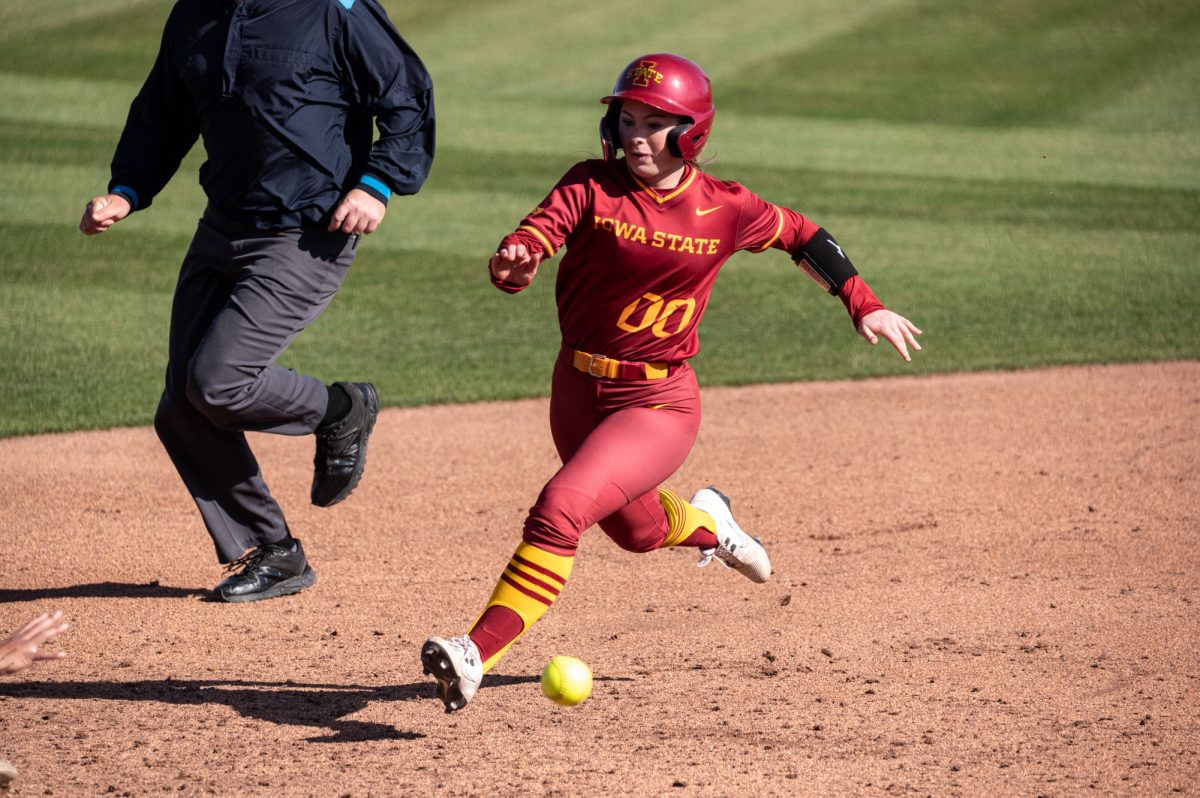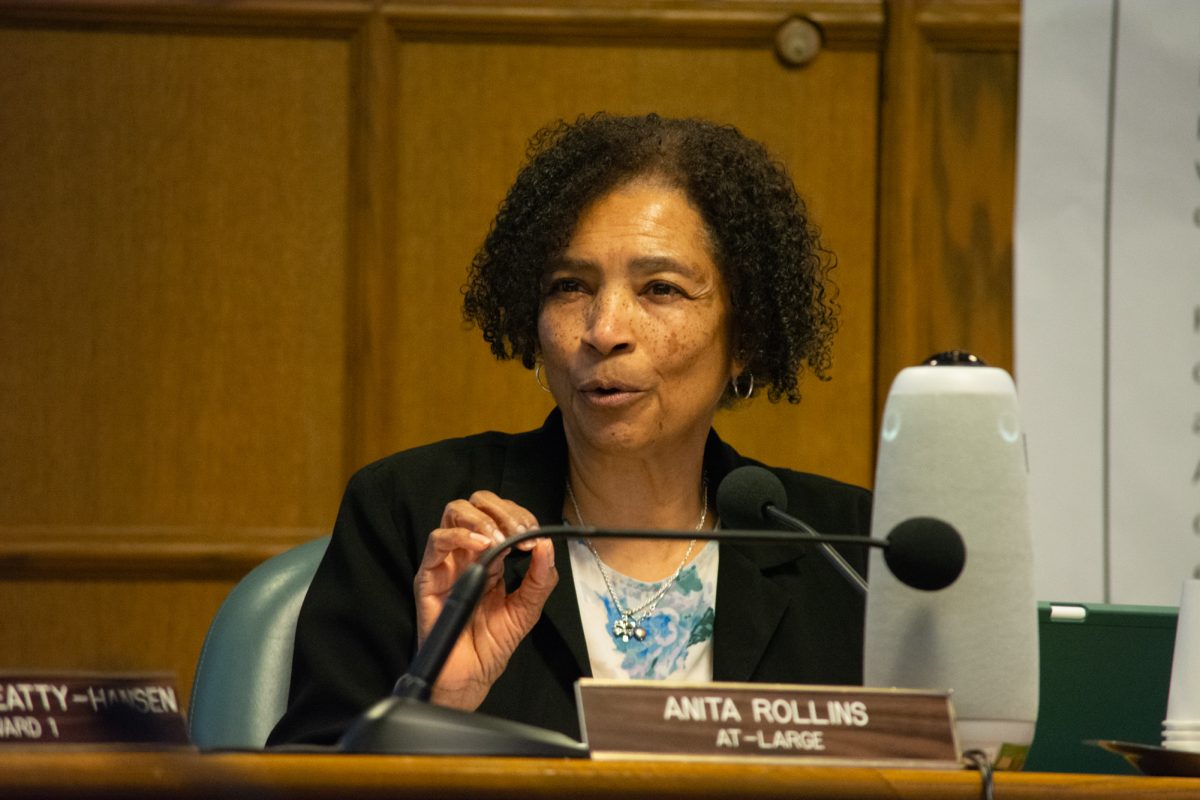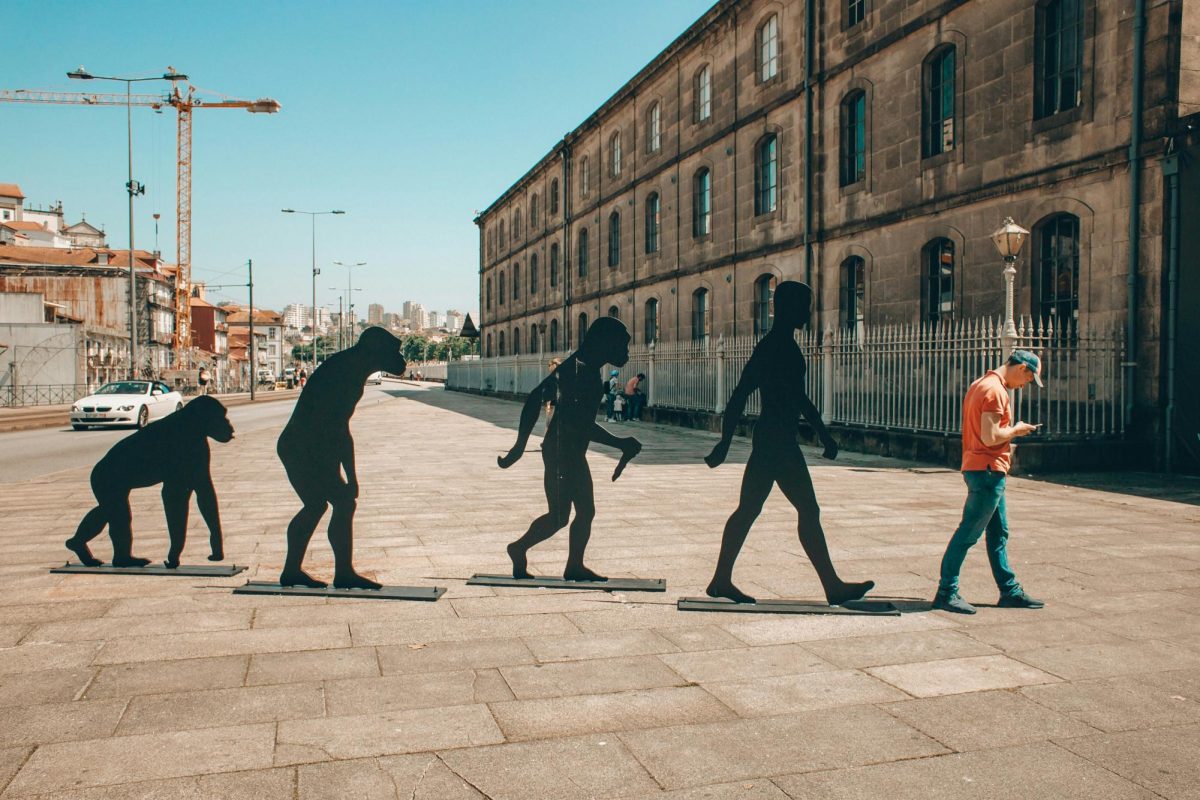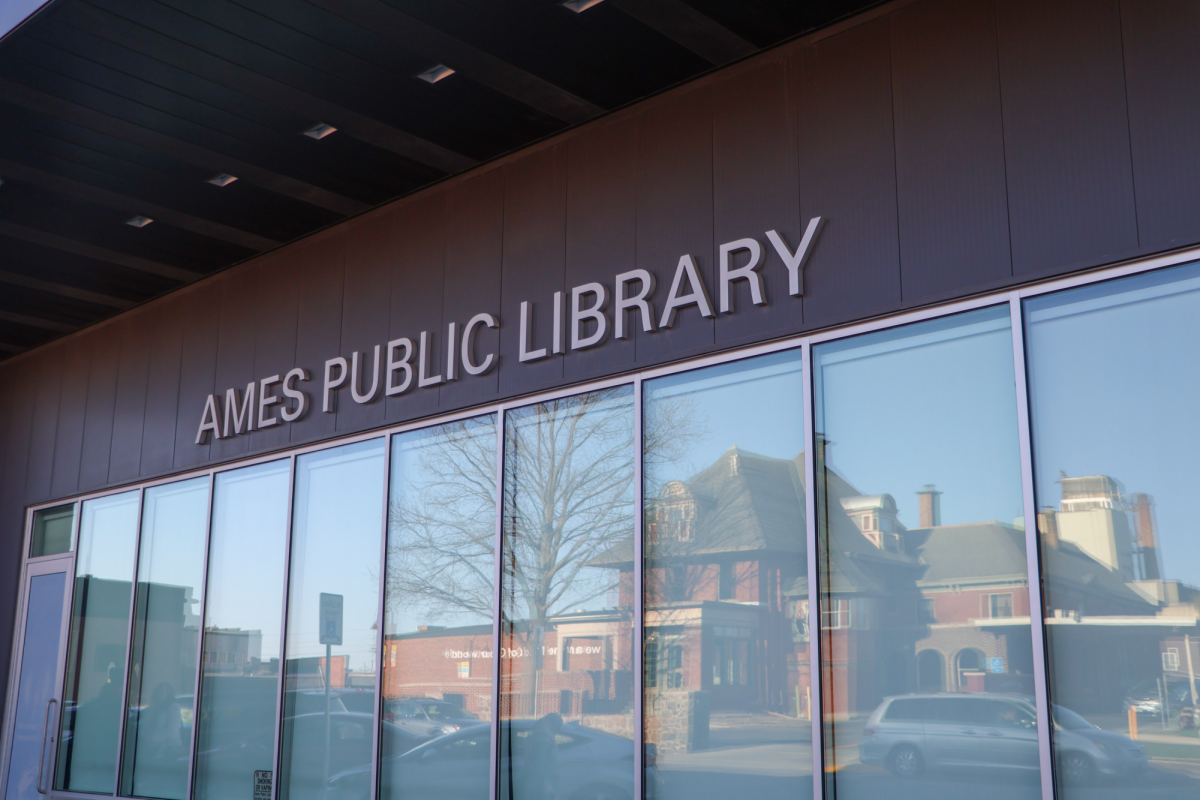Ross Hall fire results in extended building closures, department heads adjust
Soot continues to track through the halls of Ross while the emergency response team removes the ceiling tile throughout the building.
March 7, 2021
After the custodial closet in Ross Hall caught fire, all in-person classes are moved out of Ross for spring and summer 2021.
All ceiling tiles are currently being replaced, and cleaning of the heating and cooling shafts began March 1 and will take approximately two weeks. Ross Hall will not fully function until the beginning of fall 2021 and will remain closed to the public until then.
Beate Schmittmann, dean of the College of Liberal Arts and Sciences, said faculty, staff and graduate students with offices in Ross Hall are being kept apprised of the events.
The history department has been in the building since it opened in 1972. Department Chair Simon Cordery said ServiceMaster arrived soon after the fire to assess the damage and begin cleaning up.
Cordery serves as Ross Hall’s building supervisor and drove to Ross Hall as soon as he received the emergency alert. After speaking with the ISU Police about the fire, Cordery notified the history department faculty and the chair of the English and political science departments.
“The actual fire damage is minimal, but because soot was carried throughout the building by the ventilation system, every surface, including books and desks in our offices, is covered in a fine, thin layer of soot,” Cordery said in an emailed response.
As for the technology in Ross Hall, IT data cables are undergoing evaluation for damage, and a contractor is moving electronic equipment offsite for specialized cleaning.
Faculty, staff and graduate students have also had to relocate. The College of Liberal Arts and Sciences are the departments that are working with faculty and staff from Ross Hall to provide alternate on-campus work locations.
“The relocation process has gone very smoothly because of assistance from other departments, especially English, political science and the Catt Center, which have all made their facilities available to us,” Cordery said.
Volker Hegelheimer, department chair of English, said of the more than 300 classes his department teaches, only five had to be relocated due to the closure. As for the history department, Cordery said there was one graduate seminar in Ross that has been moved for the rest of the semester.
The impact on instruction was relatively small, and because of COVID-19, faculty and staff had already adjusted to working remotely. Hegelheimer said the leadership taken by Cordery and Associate Chair for Operations Matt Sivils, along with help from other departments, has made the transition smoother.
“The help we were offered after the fire really shows that this is a collegiate environment and that people are really there to help out,” Hegelheimer said.
After the fire, there was also a meeting with two other chairs who had building fires to learn what procedures should follow. Hegelheimer said while talking to the other chairs, he learned fires in buildings with sprinkler systems result in water damages.
“We are lucky that the fire alarm worked and the fire department got there in time and were able to extinguish the fire,” Hegelheimer said. “Now, we just have to deal with soot and smell.”
The majority of Ross Hall consists of offices that remained in fairly good condition after the fire.
“I walked into my office on the second floor, and it looked normal, but when you put your hand over the table you can see black soot — not much, but a fine film, and it is apparently all over the building,” Hegelhiemer said.
Removing soot and the smell of smoke from the six-story building is challenging in itself, but Ross Hall was also designed without open-window access.
“If you want to air out a building without windows, it is probably not the most ideal situation,” Hegelhiemer said.
Mack Shelley, chair of the political science department, said there was never a test on the chemicals in the air after the fire, and he appreciated the work of the emergency response team.
“They are putting themself [in] harm’s way while going out of their way to be polite,” Shelley said. “Their work is incredibly impressive.”
Classrooms, offices and the computer labs of Ross all remain in fairly good condition with most walls covered with protective plastic. Shelley said the university has done a really good job managing everything, considering the current circumstances of this year.
“This is on top of COVID, and on top of that the derecho, so you can only guess the plague of the locust is next, maybe an earthquake for amusement,” Shelley joked. “It is kind of sad, but we have sort of been used to one disaster after another.”


